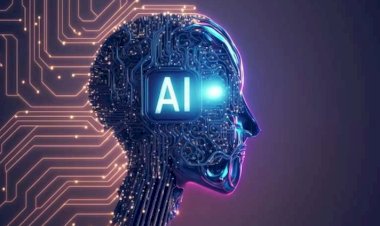Phaidra Raises $12M to Revolutionize Data Center Efficiency with AI-Driven Control Systems

The data center industry, which serves as the backbone of AI, is rapidly expanding. In the US, which accounts for 40% of the global data center market, demand is expected to reach 35 GW by 2030, up from 17 GW in 2022. Data centers are highly energy-intensive, consuming 10–50 times the energy per floor space compared to typical commercial office buildings. Existing markets are struggling to meet this demand. In Northern Virginia, the world's largest data center market, only 0.2% of grid capacity is available. In Ireland, data centers are projected to account for 32% of national electricity consumption by 2026. There is simply not enough excess power available to support AI’s current growth trajectory without significant improvements in data center infrastructure and efficiency.
Phaidra’s AI control platform addresses this challenge by turning industrial facilities into intelligent, self-learning systems that combine the precision of manual methods with the scalability and efficiency of AI. It seamlessly integrates into existing building management systems to capture real-time data, feed it into its cloud-based reinforcement learning agent, and autonomously adjust the settings on individual components to achieve optimal performance of the entire system. Unlike traditional control systems, which degrade over time and require regular manual programming updates, Phaidra’s platform automatically learns and improves. Early customers have reported efficiency improvements resulting in millions of dollars in cost savings, translating to increased power availability for revenue-generating services.
Phaidra’s founding team brings a unique mix of specific engineering expertise and world-class AI research credentials. Co-founder and CEO Jim Gao, inspired by the AlphaGo documentary while working as a data center operator at Google, explored how machine-learning technology could enhance efficiency in Google’s data centers. His enthusiasm attracted Vedavyas Panneershelvam, now Phaidra’s CTO, who had worked as a primary research engineer on AlphaGo. Together, they developed AI-powered solutions at DeepMind that reduced the energy needed to cool Google’s data centers by 30%. After publishing their findings, they were joined by Katie Hoffman, an industrial control systems engineer leading innovation projects at Trane Technologies, who became Phaidra’s third co-founder and COO.
Today, Phaidra’s team of about 100 includes top software engineers and researchers from Google, DeepMind, Meta, and Amazon, along with specialists from leading engineering firms like Trane and Johnson Controls. With $12 million in new funding, Phaidra is well-positioned to accelerate the deployment of its solutions, ensuring that data centers can meet the growing demands of AI while minimizing energy consumption and costs. This funding will support continued investment in research and development, implementation, customer success, and expanded go-to-market efforts.
“For as much as we talk about AI and growing compute capacity, we are ignoring the heart of the problem—power,” says Martin Mignot, Partner at Index Ventures. “There is no AI without sufficient energy. The more time we spent researching this problem, the more clearly we saw the importance of investing in solutions that address the downstream effects of computational growth. Phaidra is a perfect example of the right team with the right product in the right place, at a unique moment in time.”
Phaidra’s innovative AI-based control systems are set to revolutionize the data center industry by optimizing energy efficiency and enhancing compute infrastructure. The company is uniquely positioned to tackle the problem head-on, with unmatched domain expertise and AI research capabilities. As Phaidra continues its mission to help data centers worldwide optimize their energy usage, it is poised to significantly contribute to the growth and sustainability of AI development, the technology industry, and the world at large.




















